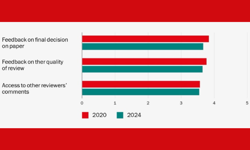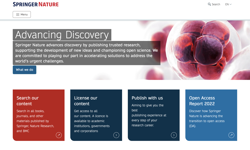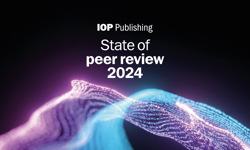
A new global study titled ‘OA in physics: researcher perspectives' from AIP Publishing, the American Physical Society (APS), IOP Publishing (IOPP) and Optica Publishing Group (formerly OSA) indicates that early career researchers (ECRs), classified as those with 1-5 years of experience, want to publish open access (OA) but they need grants from funding agencies to do so.
Over 3,000 physical science researchers from across the globe participated in the 'OA in physics: researcher perspectives' study, which was carried out by the physics society publishers to better understand and meet the needs of the physical sciences community as it relates to OA.
67% of ECRs say that making their work openly available is important to them, the study identifies, yet 70% have been prevented from publishing OA because they have not been able to access the necessary monies from funding agencies to cover the cost. When asked why ECRs favour OA publishing, agreeing with its principles and benefitting from a wider readership were cited as the top two reasons.
Daniel Keirs, head of journal strategy at IOP Publishing said: “The OA views of the next generation of physicists are important as they are the harbingers of change when it comes to scholarly communications. What we see from this study is that ECRs believe that OA is the future, and they want to be able to reap the benefits of unrestricted access to research. Good progress has been made, but the transition to full OA must neither put researchers at a disadvantage nor disregard the costs necessary to produce, protect and preserve the quality and integrity of scholarly articles and the scientific record.”
Elizabeth Nolan, deputy executive director and chief publishing officer at Optica Publishing Group, formerly OSA said: “As society publishers, we want to be sure that the transition to OA does not create a divide between those who can pay to publish their work OA, and those who can’t. We believe that all authors should have the opportunity to publish their work, and the work published should represent the diversity of the global science community. Collaboration amongst all key stakeholders, a sustainable approach and a shared commitment to supporting high-quality OA publishing are key to overcoming barriers and developing OA policies, funding mechanisms and publishing options that ensure that ECRs are fully supported in the future.”












